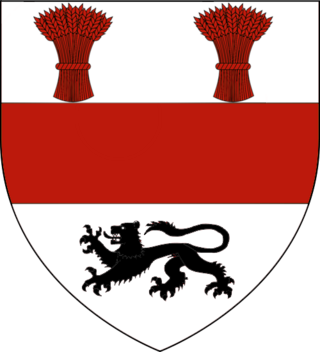See also
- Furlong Flynn (1901-1977), American football player and aviation pioneer
- Furlonge
Furlong is an English-language surname, relatively common in the United Kingdom and in the Republic of Ireland.
Notable people with the surname include:
Beckett is an English surname. Notable people with the surname include:

Kinsella is a surname of Irish Gaelic origin, developed from the original form Cinnsealach, meaning "proud". The Kinsella sept is native in part of the modern County Wexford in Leinster, a district formerly called the Kinsellaghs. The oldest documentary mention of the surname appears in the Ancient Records of Leinster, dated to 1170, where the son of the King of Leinster is named as Enna Cinsealach. Originally pronounced KIN-səl-ə, it is also often found pronounced kihn-SEL-lə. This surname is most often found in Ireland, Northern Europe, Australia and New Zealand.
Flynn is an Irish surname or first name, an anglicised form of the Irish Ó Floinn or possibly Mac Floinn, meaning "descendant or son of Flann". The name is more commonly used as a surname rather than a first name.
Browne is a variant of the English surname Brown, meaning "brown-haired" or "brown-skinned". It may sometimes be derived from French le Brun with similar meaning. The Mac an Bhreitheamhnaigh clan of County Donegal have anglicized as Browne since about 1800. The name has also been used throughout North America as an anglicization of the Spanish surname Pardo.
Devine is an Irish surname derived from Ní Dhaimhín / Ó Daimhín. Notable people with the surname include:
Hogan is an Irish surname, mostly from County Tipperary. It is the anglicised form of Gaelic ÓhÓgáin ‘descendant of Ógán', a name meaning 'young warrior'. It may also be an anglicised form of Ó hEochagáin (Houghegan). Notable people with the surname include:
Magee is an Irish and Scottish surname derived from the Irish surnames Mag Aodha and O’Maolgaoithe. It is uncommon as a given name. Notable people with the surname include:
Farrell is a surname of Irish origin. It is the anglicized form of the Gaelic patronym Ó Fearghail. The Farrells were hereditary Chiefs and Princes of Annaly.
Trainor is a surname of British origin, prevalent in English-speaking countries. It may refer to the following notable people:
The English surname or family name Hammond is derived from one of several personal names, most frequently
Dwyer is an Irish surname which is a slightly anglicised variation of O'Dwyer. It is said that people with the surname Dwyer and who come from Ireland all come from the same clan.
Humphreys is a common surname. Notable people with the surname include:
Sheridan is an Irish surname. It is derived from the Irish Gaelic Ó Sirideáin 'descendant of Sirideáin', a given name meaning 'to seek'. Originating in County Longford, the Sheridans were erenaghs of Granard, but in the County Cavan served the O'Reillys.
Coleman is a surname of Irish and English origin. The Irish surname is derived from the Irish Ó'Colmáin, Ó'Clumhain, or Mac Colmáin. The English surname is an occupational name denoting a burner of charcoal, or possibly a servant of a person named Cole.
McGinley is an Irish surname. Notable people with the surname include:
Purcell is a surname of Norman origin, and common in Ireland and England. It was given to those whose occupation was swineherd.
Whiteside is an English surname. Notable people with the surname include:
Traynor is an English and Irish surname found throughout the world.
Quinn is an Anglicised form of the Irish Ó Coinn or Mac Cuinn. The latter surname means "descendant of Conn". The surname Quinn is also rendered Ó Cuinn or Mac Cuinn in Irish. The surname is borne by several unrelated families in Ireland, especially in the northern province of Ulster and also the counties of Clare, Longford, and Mayo. According to the historian C. Thomas Cairney, the O'Quins were part of the Conmaicne Rein tribe in Ireland who came from the Erainn tribe who were the second wave of Celts to settle in Ireland from about 500 and 100 BC. The most notable family of the name are that of Thomond, a Dalcassian sept, who derive their surname from Niall Ó Cuinn who was slain at the Battle of Clontarf in 1014. This family was formerly represented by the Earls of Dunraven. Another family is that seated in Annaly, who were related to the O'Farrell lords of Longford. Another Quinn family was seated at An Chraobh, County Tyrone and they were related to the O'Neill Kings of Tír Eoghain and for whom they acted as Hereditary Quartermasters. Other families include one seated in Antrim; one seated in Raphoe; and one called Clann Cuain, seated near Castlebar. In the seventeenth century, the surname Quinn was common in Waterford. In 1890, the surname was numerous in Dublin, Tyrone, Antrim, and Roscommon. Quinn is one of the twenty most common surnames in Ireland. the surname Quinn is sometimes associated with Catholics, while Quin is associated with Protestants.